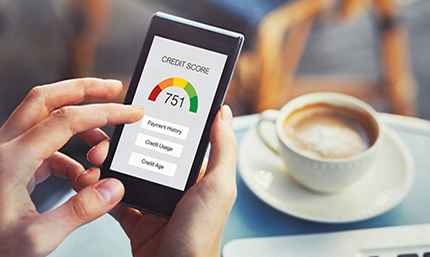News & Tips
How to Consolidate Debt

You wake up one morning feeling chilly, then realize it’s because your furnace isn’t working. You call for repair service, only to discover you need a brand-new furnace. While trying to sort that out, you learn that the car your teenager uses to drive to school and work needs a significant repair. And, oh, there’s also that college tuition payment that’s due. Perhaps you’re relating to this situation where unexpected expenses are piling up, and you’re scrambling to figure out how to pay them all. We’ll cover how to consolidate debt in this article, which could be a light at the end of the tunnel for you.
What is debt consolidation?
The term “debt consolidation” refers to taking out a new loan to pay off numerous existing debts. Ideally, your new loan would have a lower interest rate and a shorter loan term to help you save more money too. Depending on your current situation, you could take out a secured loan (financing tied to collateral such as a house or an eligible item), an unsecured loan (not backed by collateral), or a line of credit to consolidate your debts.
Benefits of Consolidating Debt
Consolidating debt offers a plethora of potential benefits. Let’s take a look at the top ones:
- Having fewer monthly payments: Many people feel a sense of relief that they no longer need to juggle multiple loan payments and due dates all at once. Instead, you’ll have one convenient payment every month.
- Enjoying more room in your budget: In most cases, you’ll have a lower interest rate on your new loan or line of credit, which usually means lower monthly payments. Or, if you just want to get the debt paid off more quickly, you can continue to pay the same amount as you had been, but the balance will drop much more quickly.
- Protecting your credit: If you’re making payments on multiple loans every month, it’s much easier to miss a payment, which could affect your credit score. When your credit score isn’t as good, you’ll have a challenging time getting loans with the best interest rates, and you might struggle with getting approval on new loans. So when you’re proactive and combine the debt into one payment, you’ll have a better chance of protecting your credit.
Is it a good idea to consolidate debt?
Whether or not consolidating debt is right for you depends on if the repayment period and the interest rate would be lower with your new loan than with your existing loan.
The top two most important benchmarks to decide if it’s right for you:
- if your total monthly debt payments (including housing costs) are less than half of your monthly gross income
- if you could pay off your debts (and still save money) with a new loan in 1½ to 5 years
Bear in mind that in most cases, you’ll also need to have steady income and good credit to secure a loan or a line of credit with a lower interest rate.
Does it hurt your credit score if you consolidate debt?
In the long run, your credit score will likely improve by consolidating your debts and making payments on time every month, adding a new type of credit to your report, and reducing the amount of money you owe at a faster pace. However, it may hurt your credit a bit if you’re closing out old credit accounts. Additionally, applying for a loan or a line of credit involves a hard hit to your credit. You can minimize any drops in your score by requesting pre-qualifications from the lender (soft credit checks) and submitting any applications in a two-week timeframe.
How to Consolidate Debt
Here’s how to consolidate debt step by step:
- Calculate your total debts and income. First, look at your money coming in (income) and money going out (expenses) every month. Feel free to use this budgeting worksheet, an excel spreadsheet, or an online application tool. It’s important to review your spending and see where it’s possible to cut costs to prevent future debts from piling up. Then, calculate your debt-to-income ratio (DTI) with this worksheet — 43% or under is ideal for debt consolidation.
- Check your credit score. First, go to AnnualCreditReport.com to see your credit reports with each of the three credit bureaus. If you see any mistakes, be sure to request that they correct them. Next, check your FICO® Score, which is free for Space Coast Credit Union (SCCU) members in their Online or Mobile Banking accounts. While lenders have their own credit scoring system, your FICO Score gives you a good baseline — 660 or higher is ideal for debt consolidation. If you don’t have good credit, the lender may allow you to have a co-signer. Here’s an article on some ways that’ll help you boost your credit score.
- Reach out for re-adjustments. Before diving into a loan or a line of credit application, reach out to your current lenders to see if they would be willing to lower your rates/fees or adjust the terms. Also, consider where else it's possible to save more money, or perhaps talk to your employer to see if you’re due for a raise or look into some part-time jobs to help your cash flow.
- Come up with a game plan. Next, it’s time to consider some repayment strategies:
- Debt avalanche method: This is a “top-down” approach focusing on interest rates. First, list all of your revolving debts with the highest interest rates to the lowest interest rates. Then, pay the minimum balances from top to bottom. Next, put any money you have leftover in your budget towards the debt with the highest interest rate until it’s paid off, then move on to the debt with the second-highest interest rate.
- Debt snowball method: List all of your debt balances from the lowest to the largest amounts. First, pay the minimum balance on all of your debts, and then use any leftover money in your budget towards the debt with the lowest balance. After you’ve paid it off, focus on paying off the debt with the next lowest balance.
- Use an elimination debt calculator. After completing the previous steps, use this calculator to see how soon you can pay off your debts. If it takes more than 18 months, go to step 6.
- Weigh your options. Now that you know your DTI and credit score, which are two important qualifications for a loan or a line of credit, it’s time to review your choices. Some of the best options to consider for debt consolidation: a personal loan, a balance-transfer credit card, or a home equity line of credit (HELOC). We’ll touch on each of these more in detail, but it’s a good idea to focus on just one technique. You can run scenarios of each method with this debt consolidation calculator.
- Shop around. Once you know your ideal method to pay off your debts, begin comparing lenders. Be on the lookout for rates, terms, and fees. By choosing a credit union like SCCU, you’re more likely to get lower interest rates and more personalized services than banks or other lenders. Plus, you won’t have to worry about application fees with us either.
- Submit an application. An application will request your personal identifying information and some financial documents such as paystubs, bank statements, or tax returns. Review all of the terms and conditions carefully. Once you’re approved (depending on creditworthiness) and receiving the funds, it’s time to pay off existing debts.
What is the best way to consolidate debt?
Let’s look at the top three ways to consolidate debt in more detail:
- Get a Balance-Transfer Credit Card: Many financial institutions offer balance-transfer credit cards—just make sure balance transfers are free. Plus, these credit cards often offer an introductory offer of 0% APR* for six months or longer. By transferring your debts to a credit card with these features, you’ll have some time to lower your overall debt amount without accruing interest, potentially saving you money in the long run too.
- Home Equity Loans: You could also consider tapping into your home’s equity to pay off existing debts. Keep in mind that home equity loans use your home as collateral, so you could risk foreclosure if you can’t make your payments on time. At SCCU, we offer fixed-rate home equity loans and home equity lines of credit (HELOC) at competitively low interest rates, bypassing high-interest credit cards.
- Fixed-Rate Home Equity Loan: Also known as a 2nd mortgage, a fixed-rate home equity loan allows you to borrow up to 85% of your home’s value as a lump sum of money with specific repayment terms.
- Home Equity Line of Credit (HELOC): With a HELOC, you can receive cash in one lump sum or access your funds at any time, right when you need it. You can borrow up to 80 percent of your home’s value or 70 percent on investment properties and interest-only mortgages. Learn more about HELOCs and their draw and repayment periods here.
- Personal Loan: A personal loan is a type of unsecured credit, which depends highly on your DTI and creditworthiness, so you may end up with a high interest rate. At SCCU, we offer Signature Loans up to 3x your gross monthly income or $40,000 with a payment period of up to 60 months. For many people, this is the best way to consolidate debt, especially if they need more time than a balance-transfer credit card could offer or if they don’t have home equity as a source of funding.
SCCU Can Help | How to Contact Us
As a not-for-profit financial institution that exists to serve our members, we offer competitively low rates and low or no fees. You can become a member if you live or work in these 34 counties and make a $5 deposit in a Share Savings account. In addition, our Team Members can provide you with personalized help with repayment plans, loan modifications, or loan rewrites if you’re facing financial hardships. In some cases, they may be able to connect you with additional funding resources.
If you have any questions, feel free to request more information here or call the branch nearest you:
• Brevard: 321-752-2222
• Broward: 954-704-5000
• Miami-Dade: 305-882-5000
• All Other Areas: 800-447-7228






















































